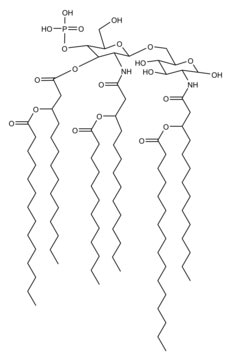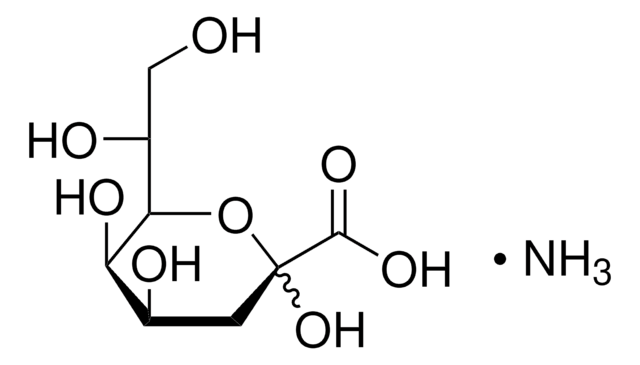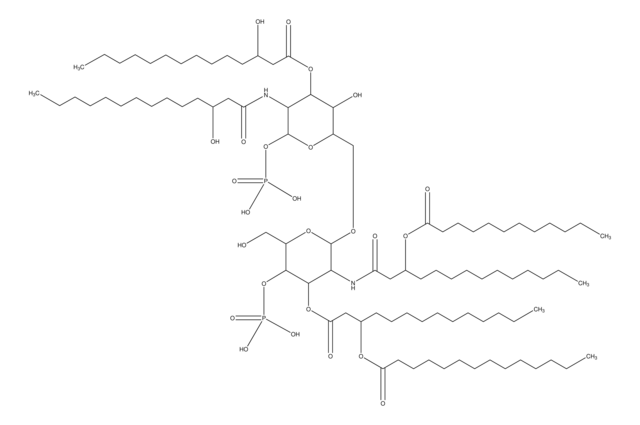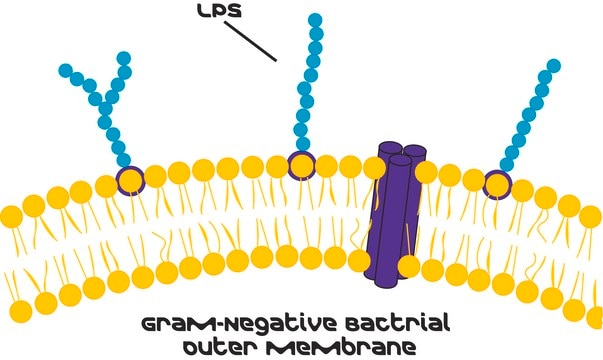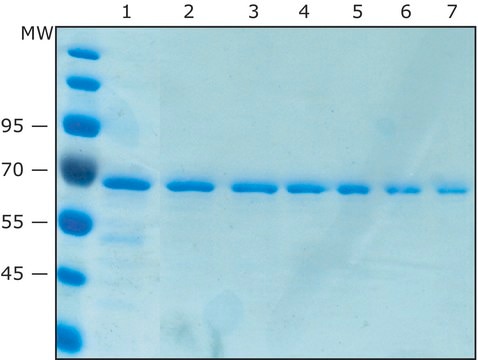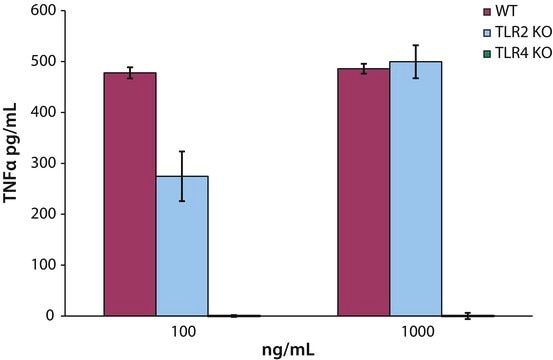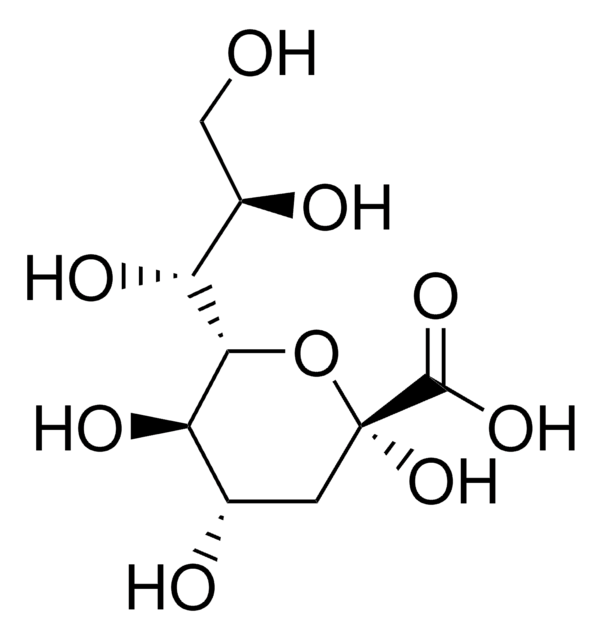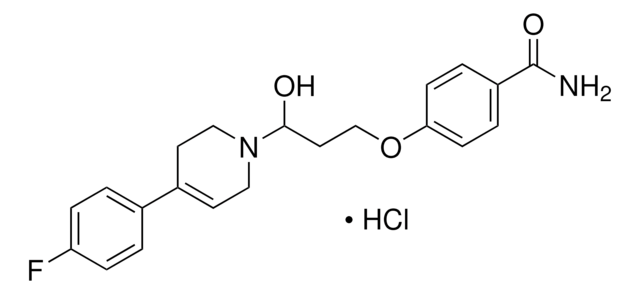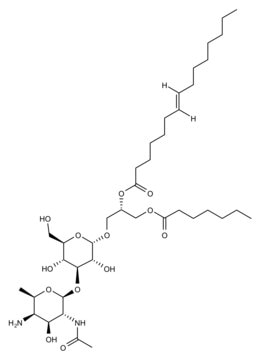SML2430
Kdo2-Lipid A (KLA)
≥90% (HPLC)
Synonym(s):
Di[3-deoxy-D-manno-octulosonyl]-lipid A (ammonium salt), KLA, Kdo2-LipidA
About This Item
Recommended Products
biological source
Escherichia coli
assay
≥90% (HPLC)
form
solid
storage temp.
−20°C
SMILES string
O=C(O)[C@@]1(O[C@H]2[C@@H](O)C([C@H](O)CO)O[C@](C(O)=O)(OC[C@H]3O[C@@H](OC[C@H]4O[C@H](OP(O)(O)=O)[C@@H](NC(C[C@@H](CCCCCCCCCCC)O)=O)C(OC(C[C@@H](CCCCCCCCCCC)O)=O)[C@H]4O)C(NC(C[C@@H](CCCCCCCCCCC)OC(CCCCCCCCCCC)=O)=O)[C@@H](OC(C[C@@H](CCCCCCCCCCC)OC(CCCCC
Related Categories
General description
Other Notes
Storage Class
11 - Combustible Solids
wgk_germany
WGK 3
flash_point_f
No data available
flash_point_c
No data available
Certificates of Analysis (COA)
Search for Certificates of Analysis (COA) by entering the products Lot/Batch Number. Lot and Batch Numbers can be found on a product’s label following the words ‘Lot’ or ‘Batch’.
Already Own This Product?
Find documentation for the products that you have recently purchased in the Document Library.
Customers Also Viewed
Articles
An overview of human microbiome research, workflow challenges, sequencing, library production, data analysis, and available microbiome reagents to support your research.
Our team of scientists has experience in all areas of research including Life Science, Material Science, Chemical Synthesis, Chromatography, Analytical and many others.
Contact Technical Service